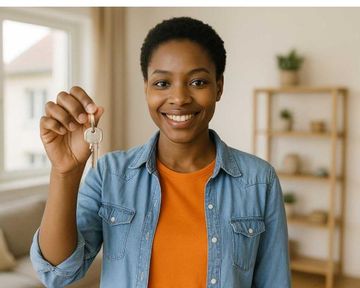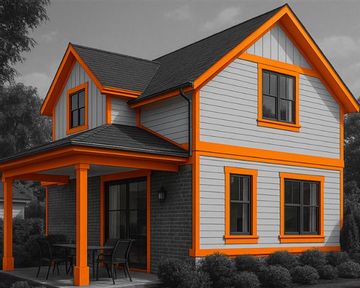The 7 property pricing myths and what to do to avoid them
If you are selling your home you might have come across a few tips and tricks on how to price your property - but the truth is that many of these are just myths and could actually get in the way of selling your home.
We take a look at seven of the most common myths and the truth
1. It’s better to price my home on the high side. If the buyer’s interested, they can make an offer
This is one of the most common myths but the reality is that if your home is overpriced from the beginning, you risk losing potential buyers who aren’t stretching their search into an uncomfortable price range. Buyers are more informed than ever before and they are usually aware of the average asking price for similar properties in your neighbourhood so they might skip your property entirely because they know you are asking too much.
The asking price sets the stage and the first price impression is the ‘window of maximum opportunity’ when buyer interest and possible offers should be at their highest.
2. If I list my home for the price I want, I might lose out on a potentially higher offer
In fact, the opposite is true. A well-priced home tends to generate a lot of interest and can result in multiple offers in a short space of time. A shorter marketing span can bring in strong offers resulting in your home selling for over your asking price or at the very least, at a higher price than if it had been on the market for an extended period of time.
3. The price of my house will improve with time
There is a strong link between how long a property has been on the market and the final selling price; and it’s not a positive one. No matter how long you’re able to ‘wait it out’, the longer your home remains on the market, the more likely buyers are to question its value in any market.
4. The lowest price I’ll accept for my property is X
When you’re faced with an offer lower than what you expected, resist the urge to draw a line in the sand with a figure you consider your ‘bottom line’ price. You can decline an offer based on a number, but you may never get there with another buyer and a subsequent offer may be lower or layered with conditions and complications. The best would be to discuss market conditions and a CMA with your real estate agent before listing to understand what to expect and whether or not a slightly lower offer should be taken or not. If you understand the market you are able to make better decisions.
5. An offer should come in close to the asking price
Sellers are often disappointed with the initial price they’re offered and ask “why so low”? In a tough market, buyers won't be eager to offer more than they absolutely have to. Unless it’s a really hot property, which is priced aggressively or in a low-inventory market. Buyers will try to get a sense of how flexible you are on price before deciding their next move. Remember, it’s not where you start but where you finish. Again, if you have prepared for market conditions and have a trusted real estate agent, you will know whether or not the offer is a good one or not.
6. Outdated features shouldn’t impact my selling price
Unfortunately, they do. Buyers are looking at how much they’re going to have to spend to bring the home up to today’s standards and are going to deduct accordingly when formulating an offer. You would do the same!
If you are able to, updating a few key areas or fixtures and fittings might make the world's difference.
7. The buyer’s offer is simply too far off the asking price to counter
When a buyer steps up and puts pen to paper with an offer, it’s an invitation to negotiate and begin discussions about the property. So start negotiating.
Making decisions about property, especially when it’s your own, can be very emotional and it’s easy to take offense but it’s best to try to keep emotions out of the negotiation and work in good faith with what’s presented. A good agent will know their buyer and will learn quickly if it looks like a deal may come together.
Pricing your property is about finding the right balance and when the market is low, sellers can’t be guaranteed as strong a selling price as they would usually expect. Setting the stage with the right pricing will set the tone for how smoothly the listing-to-sale experience unfolds.

